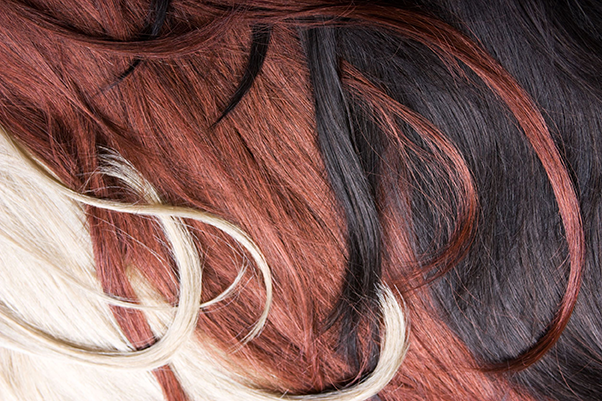How I Handled Hair Loss with Joy
by Joy Huber
For me, hair loss was the most emotionally painful part of my cancer experience. But I managed to handle my hair loss with joy. There were definitely tears shed, and there was certainly sadness. But I did not stay there. I moved quickly from crying to laughing. Here’s how.
The Hair Cut
My hair loss happened in stages. About four weeks after my diagnosis, and just a week after my first chemotherapy treatment, I decided to have my shoulder-length hair cut very short. It was probably the shortest it had been in 20 years.
I was pleasantly surprised at how much I liked my new, very short ‘do. But I decided I couldn’t like it too much, because I knew it was going to fall out. I joked that my hair was trying to decide if it should stick around for the rest of the cancer experience or just leave now and come back later. Perhaps it was playing the song “Should I Stay or Should I Go?” Humor definitely helped me along this journey.
My hair was trying to decide if it should stick around for the rest of the cancer experience or just leave now and come back later.
The Hair-Loss Shower
I took what I call a hair-loss shower on May 4, 2010. When I wet my hair in the shower that day, I heard a splat. I had a feeling I knew what it was, and when I looked down, much of my hair was lying on the tub drain. It had come out when the stream of water from the shower hit my head. I had known this was coming, because when I would run my fingers through my hair, it would just come out in my hands. This is the moment when I remember
crying the hardest. It’s one thing to know something is going to happen, but it’s completely different when it actually does happen.
I remember standing in the shower with shampoo in my hair, agonizing about having to put my head back under the stream to rinse. Was the rest of my hair just going to fall out right then and there? Would I be completely bald by the end of this shower?
The funny thing is, as I was getting out of the shower, “Consider Me Gone” by Reba McEntire was playing on my radio. Reba was singing, “If I’m not the one thing you can’t stand to lose … consider me gone!” It felt like my hair was telling me goodbye. My hair was the one thing I could not stand to lose; I really, really did not want to lose my hair. But I started laughing. You just can’t make that stuff up.
The Fashion Show
After the hair-loss shower, I decided to shave my head so I would not have to take such an emotional shower again. I visited my local American Cancer Society office, and they loaned me some wigs, hats, and scarves. I also ordered some hats, wigs, and halos from a catalog. A halo is an elastic ring of hair that, when paired with a fun hat or scarf, gives you the look of having a full head of hair while keeping the top of your head cool.
I handled the complete loss of my hair with joy by having fun with the halos, hats, and wigs. I held an online “fashion show” where I tried out many different looks. My mom took pictures of me wearing wigs of various colors, lengths, and styles, and I uploaded them to Facebook and to my CaringBridge site. I let my friends vote on their favorite styles by liking and commenting on the photos to help me choose my best looks for the summer. This showed my friends that I was coping well with my hair loss and was actually making it fun by letting them get involved.
I chose to make the hair-loss process fun instead of only crying over it. I moved beyond being sad to having cancer with joy. Now I’m blessed to help others do the same.

Professional speaker, Huffington Post blogger, and songwriter Joy Huber is a stage IV non-Hodgkin follicular lymphoma survivor living in Lincoln, NE. This article is adapted from her book Cancer with Joy: How to Transform Fear into Happiness and Find the Bright Side Effects, published by Morgan James Publishing. Keep up with Joy on twitter.com/CancerwithJoy or facebook.com/CancerwithJoy.
This article was published in Coping® with Cancer magazine, September/October 2013.
Everyone has a unique story to share. Do you want to share your survivor story? We consider a cancer survivor to be anyone living with a history of cancer – from diagnosis through the remainder of life.
Here are our submission guidelines.


